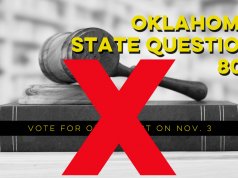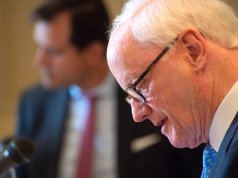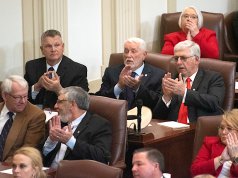

The inspiration for my blog, OCPAThinker.org, began several years ago when a friend from college was the featured speaker at the annual fundraiser for the Oklahoma Council of Public Affairs. I attended to support him but then had to endure the OCPA’s communications for several years thereafter, candidly paying little attention until I went to work as chief financial officer for an Oklahoma school district.
Soon after landing the CFO gig, I became painfully aware of how the OCPA influenced a growing number of Oklahoma legislators who believed the group to be a true research organization dedicated to presenting policy proposals based on facts and sound analyses. Instead, the OCPA is Oklahoma’s rendition of the lightweight “conservative” think tanks spread throughout our nation by rich donors with a clear agenda of reducing government spending — and services — at the state and federal levels. Generally, they neither think nor analyze, they simply whine and proselytize. Their influence is in no small part responsible for the financial mess in which our state is now.
So, the name for my blog stems from the fact that I am an: Oklahoma (born in Osage County in 1947, graduated Tulsa’s Nathan Hale High School 1965) Councilor (my 15 minutes of fame was being Tulsa’s first Chair of its City Council in 1990) for Public (OCPA and other limited thinkers) Accountability.
Fact-checking Oklahoma and beyond
Since June 2016, I have posted 60 times, mostly about something silly the OCPA or an echoing tank, The 1889 Institute, have written but sometimes on other matters that I hope are of interest.
Recently, I published posts in anticipation of the legislative special session that, unfortunately, remains ongoing. I’ve also posted about Politifact’s recent finding that a related statement by the OCPA was “mostly false,” as published Oct. 17 by the Tulsa World.
My first in-depth review of OCPA’s work concerned the December 2013 paper Saving Workers’ Retirement, which revealed the group’s shallow analysis and ideologically driven conclusions. Now that I have retired on earned public pensions (Social Security and Oklahoma Teachers Retirement), I have time to formally review and correct some of what OCPA produces. Unfortunately, their recommendations contributed to legislation that closed Oklahoma’s existing state-employee pension plan to new state workers. Here is a summary of my study of Oklahoma’s public pensions I prepared in early 2015.
I look forward to continue offering a source of counterbalance to slanted reports and misstated facts regarding Oklahoma, my home for seven decades.





















